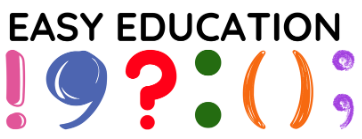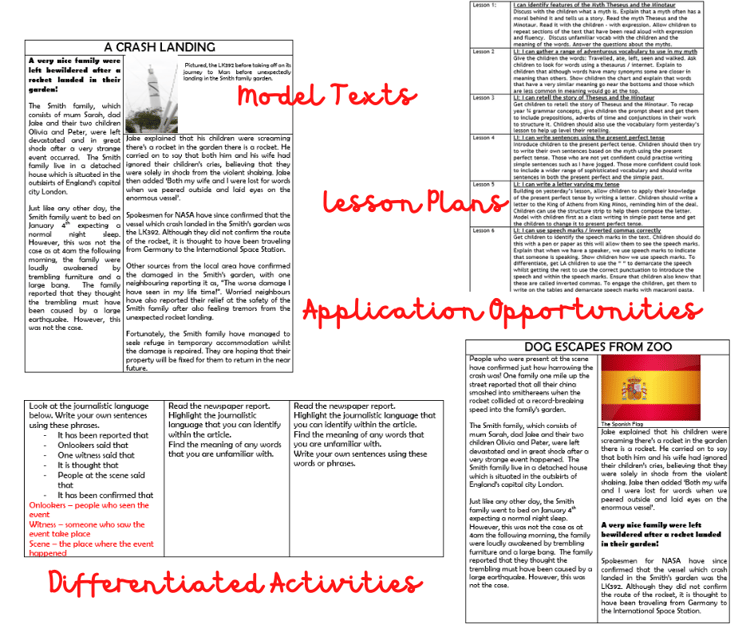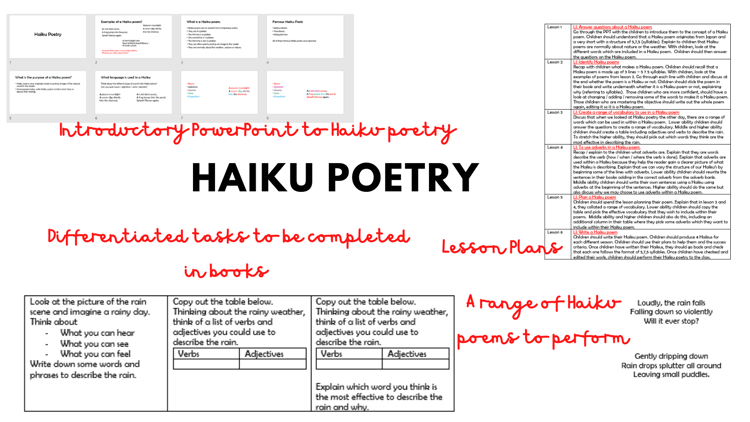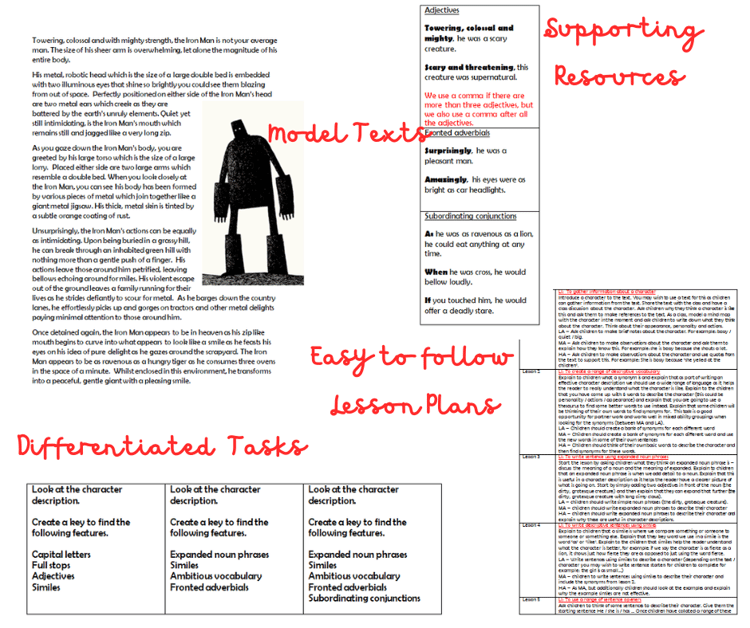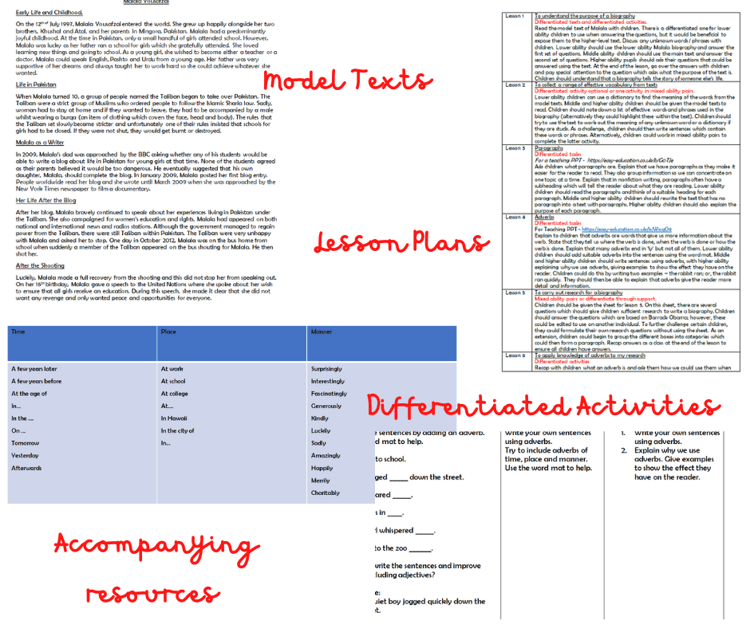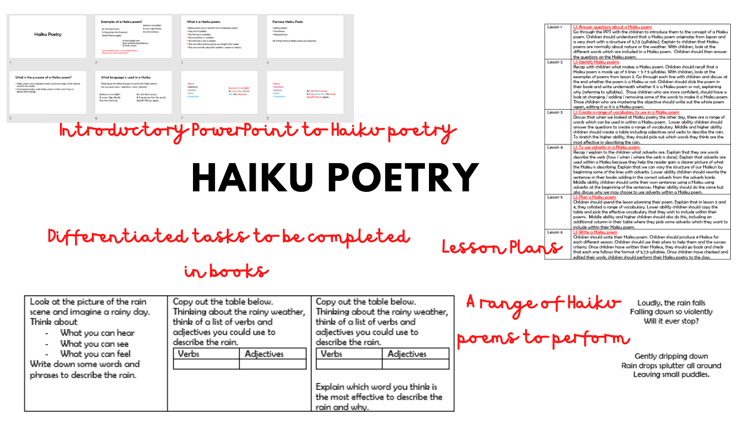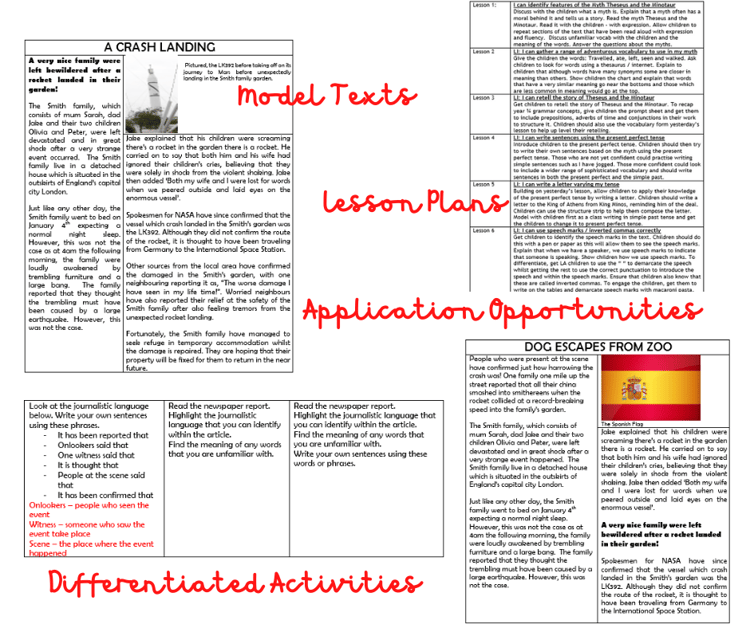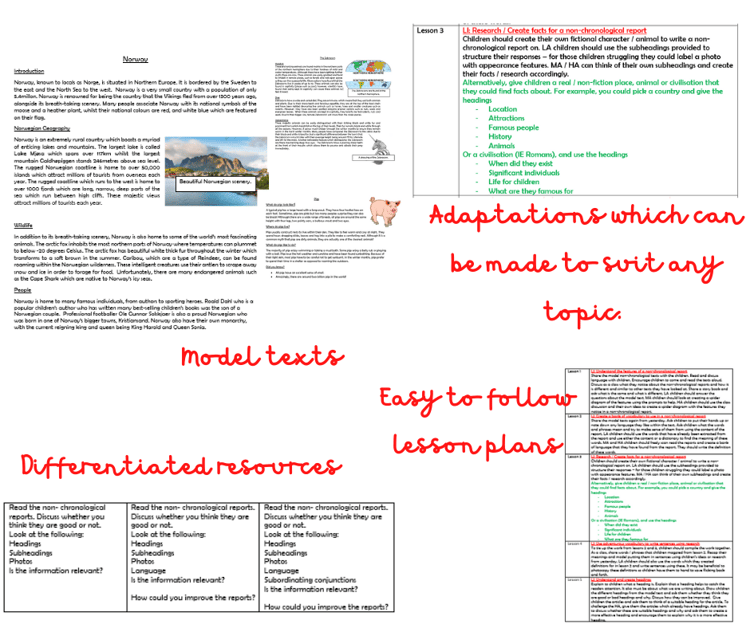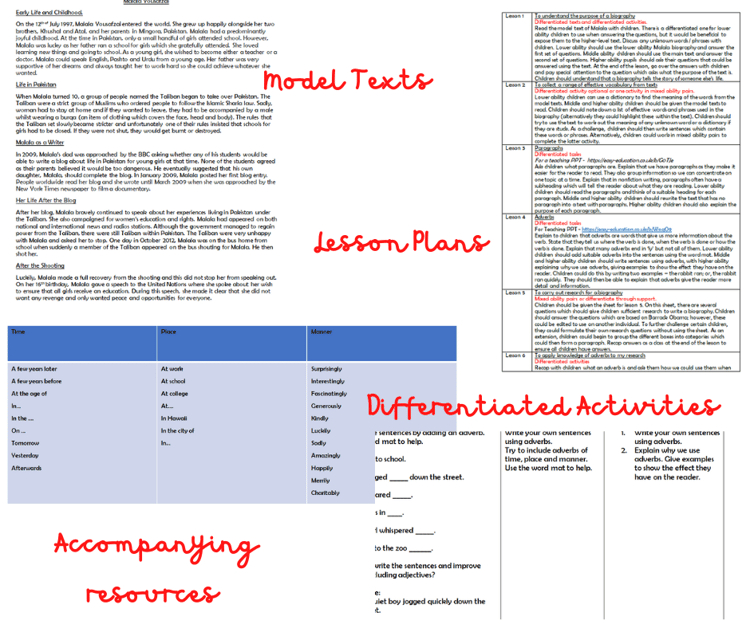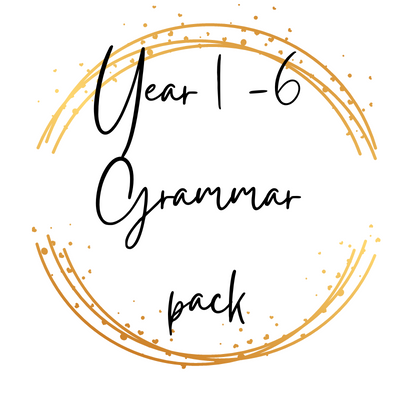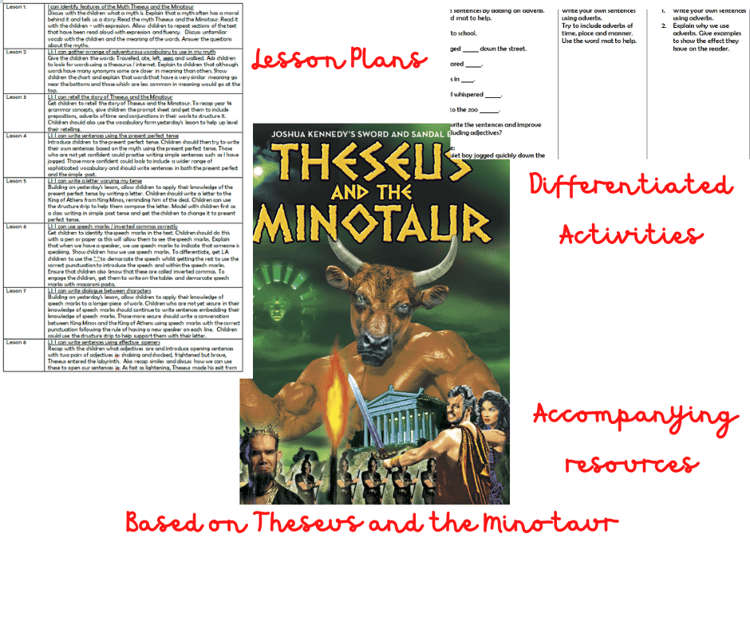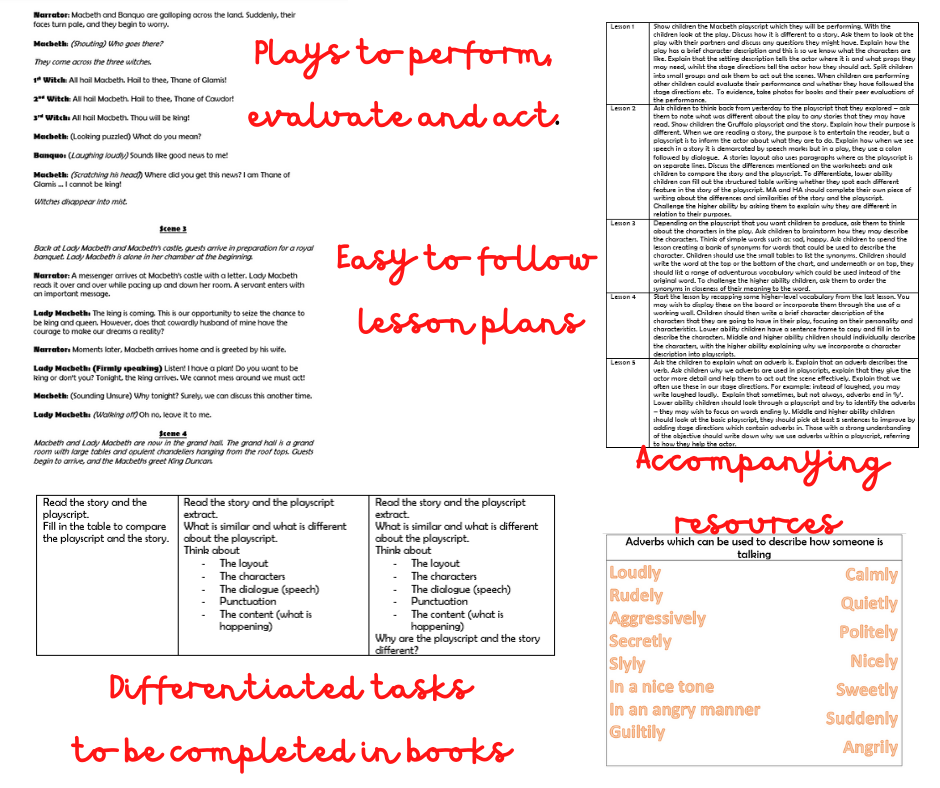
Play Scripts Y34
On Sale
£2.50
£2.50
A unit on playscripts, based on the year 4 curriculum, consisting of 11 lessons. The pack includes 11 lessons which are fully resourced with differenitated tasks, accompanying resources and plays to evaluate, improve and perform. The unit focuses on looking at the different aspects of playscripts, with the children producing their own playscript in Lesson 11. The unit can be used with any text.
Lesson 1 - Perform a playscript
Lesson 2 - Compare a play script and a story
Lesson 3 - Create a range of synonyms to describe characters within a play
Lesson 4 - Create a character description which can be used in a play
Lesson 5 - Identify / use adverbs within a play script
Lesson 6 - Identify features within a play script
Lesson 7 - Turn dialogue into a play script
Lesson 8 - Evaluate a play script
Lesson 9 -
Lesson 1 - Perform a playscript
Lesson 2 - Compare a play script and a story
Lesson 3 - Create a range of synonyms to describe characters within a play
Lesson 4 - Create a character description which can be used in a play
Lesson 5 - Identify / use adverbs within a play script
Lesson 6 - Identify features within a play script
Lesson 7 - Turn dialogue into a play script
Lesson 8 - Evaluate a play script
Lesson 9 -
- Improve a play script
Lesson 10 - Plan a playscript
Lesson 11 - Write a play script
Curriculum aims - listening to and discussing a wide range of fiction, poetry, plays, non-fiction and reference books or textbooks
- checking that the text makes sense to them, discussing their understanding, and explaining the meaning of words in context
- preparing poems and play scripts to read aloud and to perform, showing understanding through intonation, tone, volume and action
- Reading, re-reading, and rehearsing poems and plays for presentation and performance give pupils opportunities to discuss language, including vocabulary, extending their interest in the meaning and origin of words. Pupils should be encouraged to use drama approaches to understand how to perform plays and poems to support their understanding of the meaning. These activities also provide them with an incentive to find out what expression is required, so feeding into comprehension.
- write from memory simple sentences, dictated by the teacher, that include words and punctuation taught so far
- plan their writing by:discussing writing similar to that which they are planning to write in order to understand and learn from its structure, vocabulary and grammar
discussing and recording ideas - in narratives, creating settings, characters and plot
- read their own writing aloud to a group or the whole class, using appropriate intonation and controlling the tone and volume so that the meaning is clear
